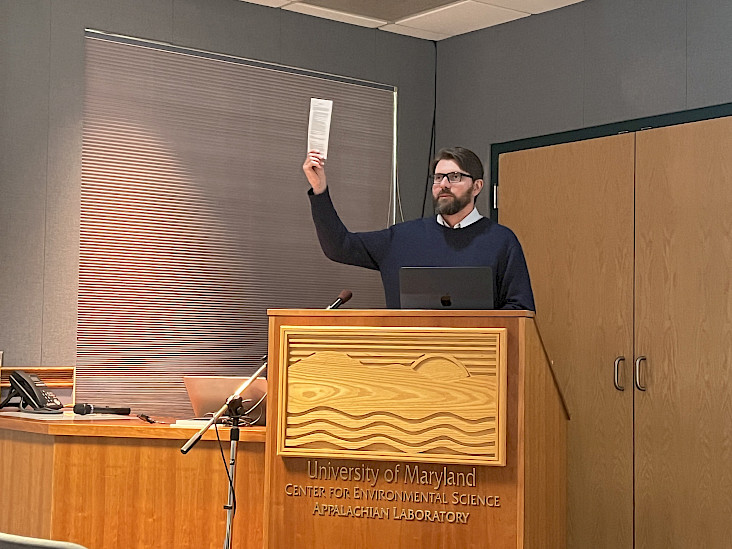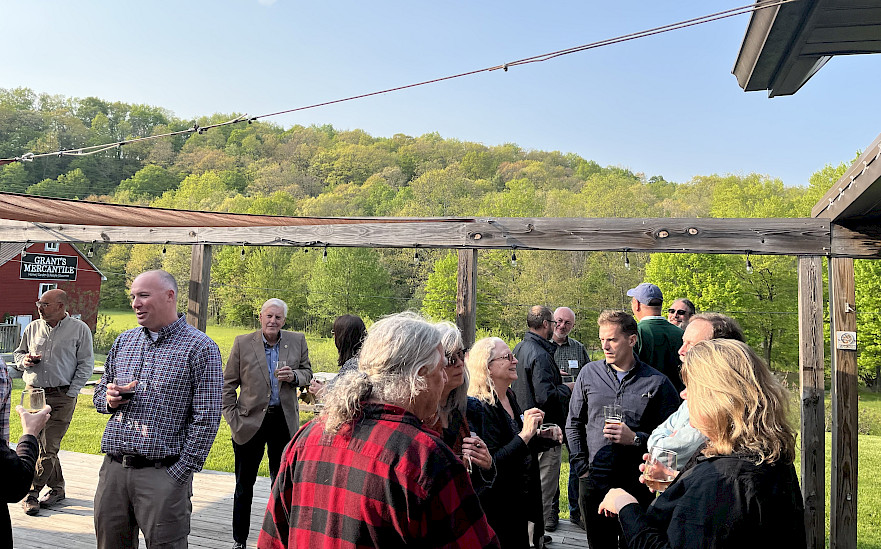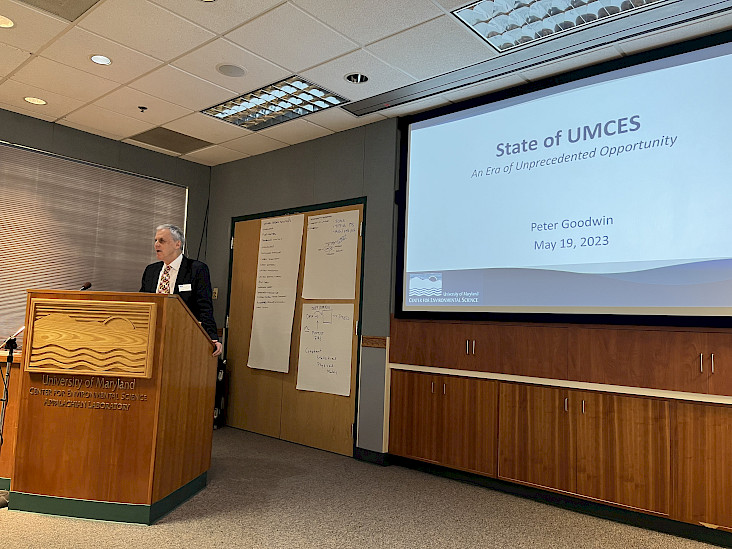University of Maryland Center for Environmental Science Faculty Convocation
Bill Dennison ·Every year, the faculty from the various units of the University of Maryland Center for Environmental Science (UMCES) gather for a day and a half at one of the campuses. This year, the Faculty Convocation was hosted by the Appalachian Laboratory. We had beautiful crisp spring weather in the mountains and a very engaging Convocation with the theme “Research Grand Challenges”. The UMCES faculty senate organizes the Convocation, and Andrew Elmore, Faculty Senate Chair, was the convenor.
The faculty senate invited the newly established Director of the Horn Point Laboratory, Mike Sieracki, to provide insights from his 10 years at the National Science Foundation (NSF). My favorite factoid from Mike’s talk was that the entire annual NSF budget for basic research was roughly equivalent to the amount of money Americans spend every year on potato chips. Mike alerted us to the newest NSF Directorate “TIP: Technology Innovation Partnership” which is highly relevant to UMCES research. Mike added a bit about creating a culture of civility; including virtues, values, practices, ethics, and policies. He pointed out that the intersection of ‘big science’ and BA-JEDI (Belonging, Accessibility, Justice, Equality, Diversity, and Inclusion ) is where leadership opportunities exist.

We had four breakout groups addressing the following topics:
- Artificial intelligence in environmental science: UMCES' strengths in data generation, aligning data with solutions, education, and the Chesapeake Global Collaboratory concept provides opportunities to collaborate with the artificial intelligence (AI) community. AI models can be faster, providing more access, image analysis can be enhanced, faster simulations can be conducted, and synthesis efforts in which assumptions can be tested.
- Research translation and industry partnerships: Training and workforce development can be achieved with industry partnerships. A survey of existing partners would help prioritize trainings. Topics like water security and allocation, climate change, blue economy, and land/food security could be developed as training modules/courses.
- Evaluating nature-based solutions: The movement of water across the landscape and seascape is a unifying topic, as well as filtration (e.g., soil infiltration, oyster biofiltration). Scaling is a big part of evaluating nature-based solutions so that we can understand which practices ‘move the needle’. Tipping points for ecosystem responses and how to apply best management practices were also identified as important topics.
- Dimensions of biodiversity: Sequencing the Bay and the Watershed were cited as potentially transformative practices. The connections between human health and ecosystem health could be facilitated by comprehensive sequencing. In addition, early warning systems for ecosystem transformations and source tracking could be enhanced.
We had a nice dinner at the Cornucopia Café in Grantsville which included our University System of Maryland Board of Regents member Bob Rauch and our invited Commencement speaker Dr. Kandis Boyd from the Environmental Protection Agency.

On the second day of the UMCES Faculty Convocation, Peter Goodwin, the outgoing UMCES President, provided his final State of the Center. Larry Sanford, the UMCES Vice President for Education, provided an education update that included the new Office of Professional Studies. Each of the unit heads provided updates: Fredricka Moser (Maryland SeaGrant), Heath Kelsey (Integration and Application Network), Mike Sieracki (Horn Point Laboratory), Tom Miller (Chesapeake Biological Laboratory), Russell Hill (Institute of Marine Environmental Technology) and Dave Nelson (Appalachian Laboratory).

We had a plenary discussion about opportunities and challenges for scientific productivity in the new work landscape. An exciting suggestion by Russell Hill was to have graduate students spend one semester at one of the other UMCES units to broaden their exposure and incentivize more collaboration. The desire to have people come into the workplace more frequency was shared and various ideas were suggested: faculty provide the example, have bagels, pizza, or other food events, work to create a culture of intellectual curiosity. An idea that was floated was to have organized field trips, including faculty, students, and staff. Horn Point has weekly bird walks, for example.
Faculty convocations seem to fly by, because we spend so much time catching up with one another, especially following the pandemic. I look forward to our next gathering.
About the author
Bill Dennison

Dr. Bill Dennison is a Professor of Marine Science and Vice President for Science Application at the University of Maryland Center for Environmental Science.